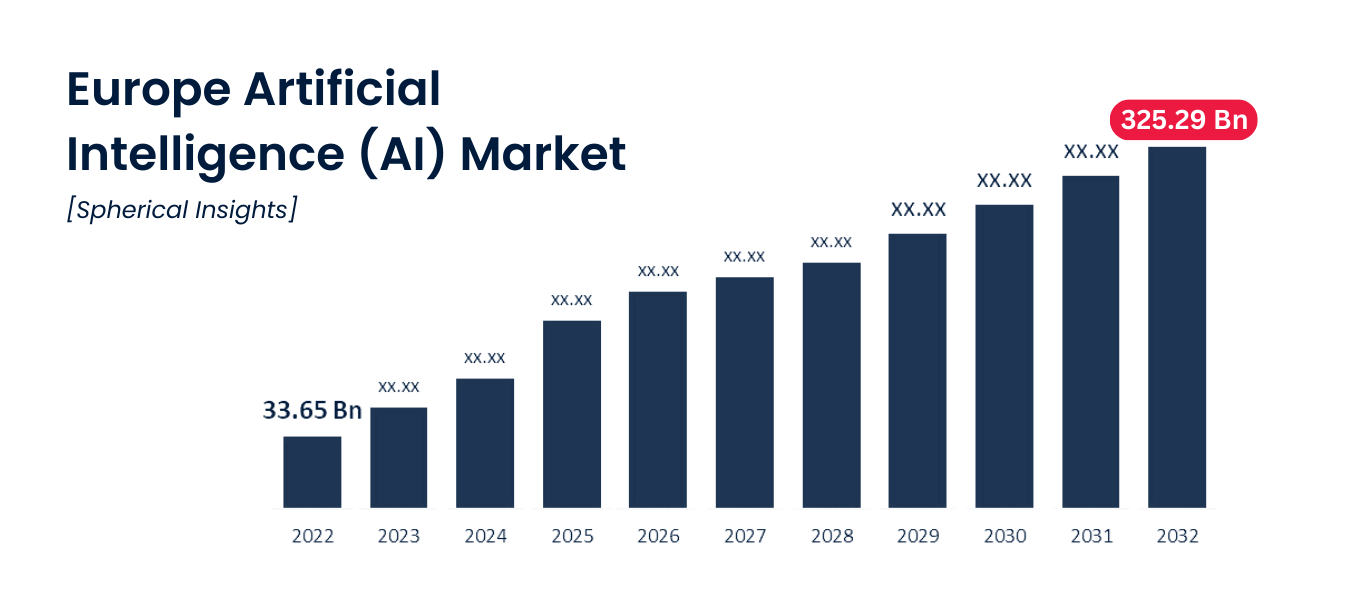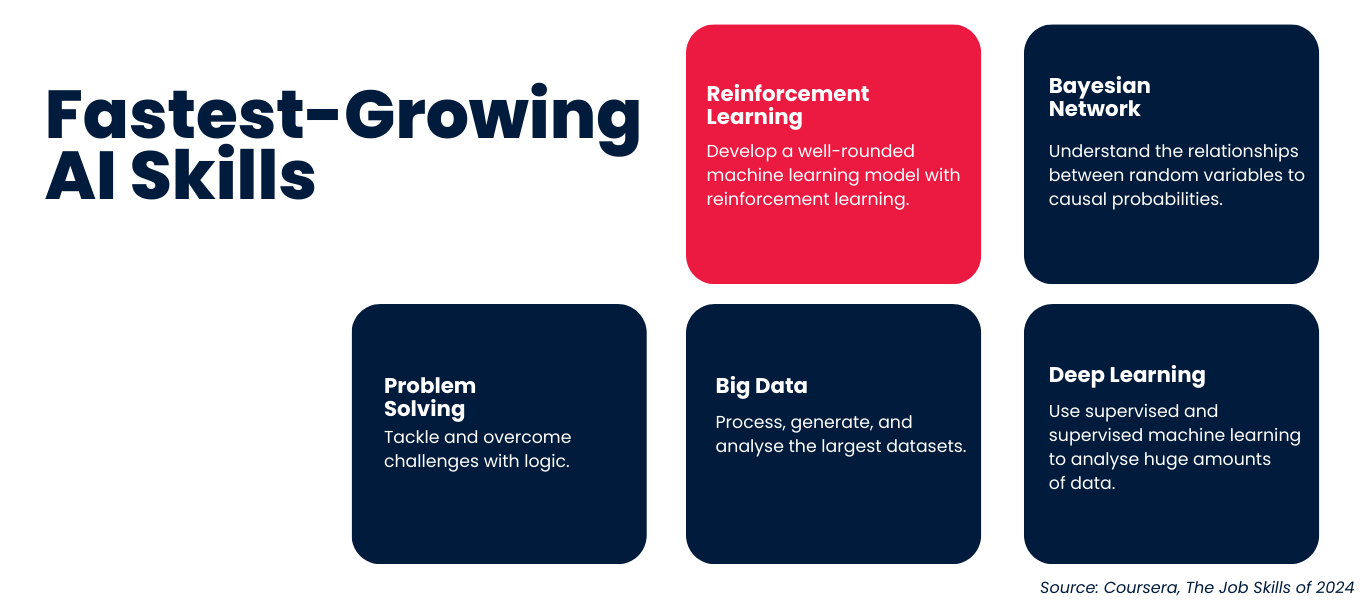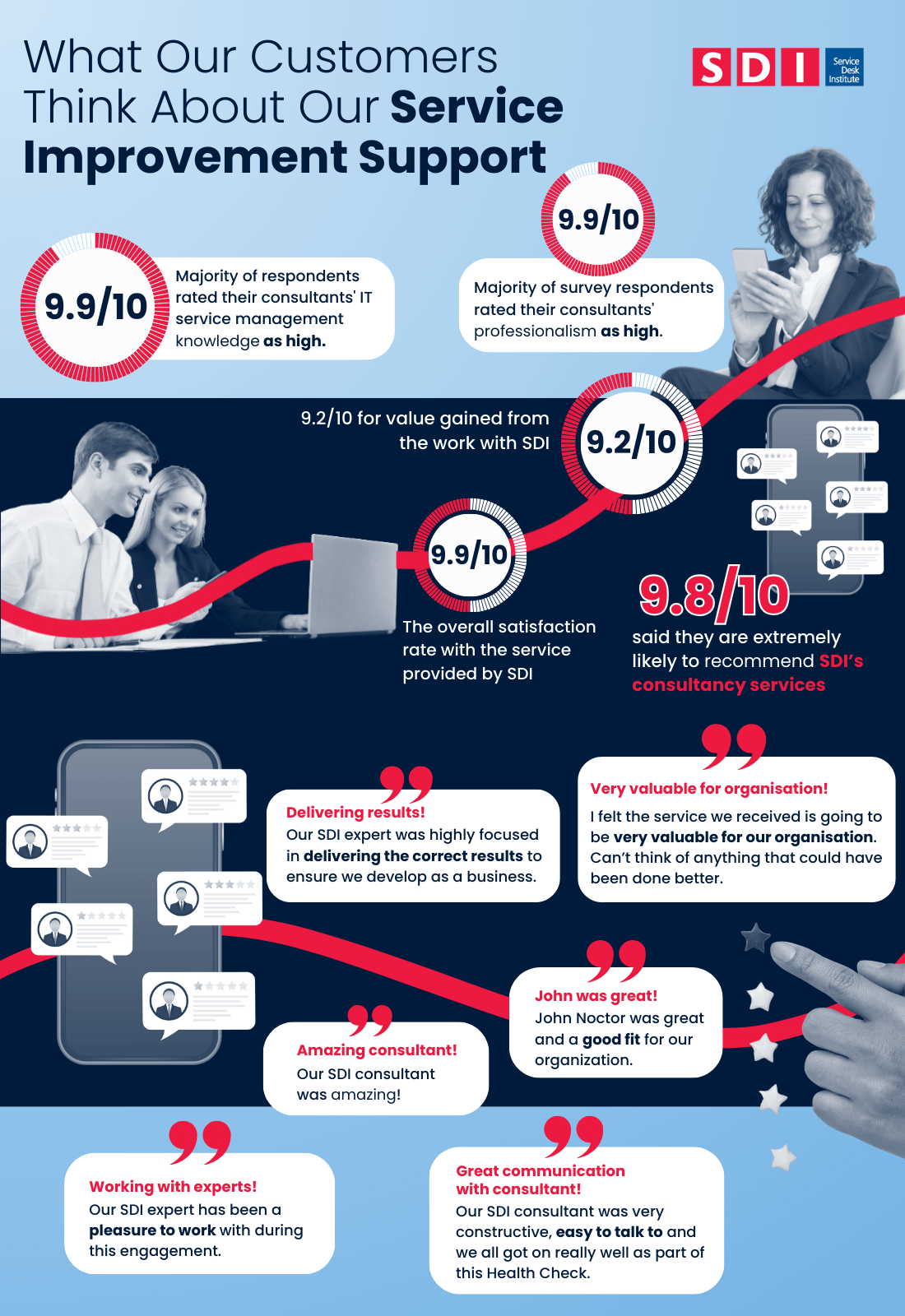 Back to Resources
Back to Resources
In this blog post, we’ll explore how the adoption of new AI technologies is impacting the ITSM industry and dive into some statistics related to the common challenges organisations face. We’ll also take a closer look at cybersecurity trends and the latest trends in improving employee experience in 2024.
So, if you’re interested in getting a better picture of how the landscape of ITSM is evolving, keep reading!
Adoption of AI in ITSM
AI is undeniably shaping the future of work, and its impact on the global economy and labour markets will be even more significant in 2024. In fact, the European AI market has been flourishing, and it was valued at USD 33.65 Billion in 2022. By 2032, it is expected to reach a whopping USD 325.29 billion.

IT Service Management is one of the industries that can benefit from AI adoption in many ways. By leveraging machine learning algorithms and predictive analytics, AI is enabling IT service teams to automate repetitive tasks, detect and resolve issues proactively, and improve the overall efficiency of the IT service desk.
Additionally, AI-powered chatbots are becoming increasingly popular in providing customer support, reducing response times, and increasing customer satisfaction.
📈 “According to ITSM.tools research, 73% of the organisations with an ITSM tool already have access to AI capabilities. Additionally, the research indicates that 84% of organisations have integrated some type of AI capability, either in IT or business functions.”
And let’s not forget about AI’s ability to analyse large amounts of data quickly. This can provide valuable insights into service performance and help IT teams identify areas for improvement.
Overall, AI is expected to continue revolutionising ITSM by enhancing its speed, accuracy, and scalability.
By analysing the market trends, it’s evident that some major organisations, including Microsoft, Alphabet, and Amazon, are projected to attain more competitiveness and profits due to advancements in AI.
These companies have the financial resources to attract the best AI talent, giving them an advantage in creating innovative AI products and services. As well as using AI to enhance customer and employee experience.
Gartner predicts that organisations will start investing in planning to use generative AI in 2024. Based on Coursera’s Job Skills of 2024 Report there is a surge in interest in AI skills.
The report also highlights a 271% year-on-year increase in searches for team-related skills such as ‘AI’, ‘ChatGPT’ and ‘generative AI’.

However, it’s worth keeping in mind that relying on AI alone won’t necessarily boost service desk productivity overnight. Integrating new technology into an organisation can be a daunting task, requiring significant effort to revamp work processes and their related components.
This is especially true when it comes to adopting AI in ITSM, as companies may encounter a range of challenges, including:
⭕ Skills and expertise shortage
⭕ Budget constraints
⭕ Resource availability
⭕ ROI concerns
⭕ Compatibility issues with current IT infrastructure
⭕ Lack of clear AI strategy
⭕ Security and privacy concerns
⭕ Ethical considerations
⭕ Resistance to change
Remote Work Impact on ITSM
Another trend that will continue to shape the ITSM industry is focusing on flexible, remote, and hybrid workplaces. But hybrid work comes with its own set of challenges.
Without clear policies, businesses risk facing operational inefficiencies, security breaches, and communication gaps that can harm service delivery and overall success. So, it is essential to establish workplace policies that cater to a hybrid work environment.
On the other hand, many companies are already developing tools and products to support this trend. So, in 2024, we can expect to see an increase in the remote support software market due to the growing demand for remote-based IT support and the desire to reduce help desk costs.
According to Trust Radius research, over 50% of businesses expected to increase their spending on remote desktop software.
📊 “Facts and Factors estimate that the Global Remote Support Software Market Size will grow from USD 1.9 billion in 2020 to USD 5.4 billion in 2026. Market growth will average 13.9% from 2020 to 2026.”
If we look at global data, North America is expected to have the largest market share in remote support software. At the same time, Asia Pacific is predicted to occupy a substantial market share.
The Rise of Cybersecurity Threats
With the increasing use of AI technology, the need for security and compliance is more crucial than ever before. In 2024, ITSM will have to prioritise these aspects to ensure the safety of their systems.
To stay safe from cyber threats and comply with industry standards, it’s important to take proactive measures. This includes implementing robust security measures, conducting regular audits, and ensuring compliance with industry regulations.
“According to the Email Security Risk Report by cybersecurity company Egress, the number of organisations falling victim to phishing attacks increased by 2% from the previous year to 94%.”
The report shows that 61% of cybersecurity leaders are concerned about AI chatbots being used for phishing attacks. This highlights the industry’s growing worries about AI-related cyber risks, with 63% of respondents expressing concerns about deepfakes.
As these cyber threats continue to evolve in complexity and frequency, the Zero Trust Security model will become one of the ways to strengthen its defences against these threats.
Focus on Improving Employee Experience
Overall, the dominant trend for 2024 seems to revolve around empowerment and engagement. Many organisations are focusing on creating a workplace environment that fosters a sense of value and support for employees.
This means that there will be a significant change in the way internal communication is carried out among organisations. The adoption of AI and technology, personalized approaches, and data-driven insights will play a crucial role in enhancing employee experience.
Companies are now finding ways to amplify the voices of their frontline employees and making real efforts to act on their feedback.
If we look at the customer support, it’s more than just resolving technical issues. It’s about building content and a motivated service desk team. As a service desk team that is happy and motivated can provide outstanding customer service experiences while fostering a positive work environment.
To create a happy service desk in 2024, it’s necessary to embrace the latest practices, recognise and reward employee achievements, promote teamwork, and offer ongoing training and career growth opportunities.
Do you want to turn your challenges into triumphs?
Whether it’s outdated working practices, inefficient process management, or a lack of ITSM tool utilisation, we’ll help you pinpoint the exact areas that need attention. From there, we’ll craft a personalised Service Improvement Plan tailored to your organisation’s needs, resources, and objectives.
With our guidance and support, you’ll not only find the right path for your organisation but also achieve tangible results that drive your service desk and support team to new heights.
Talk with us today, and let us help you unlock your team’s full potential!

















